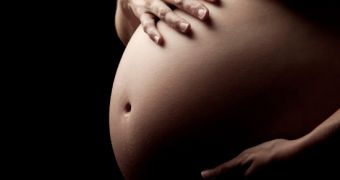Presently, doctors either induce or augment the labor of a considerable number of women. It may very well be that such medical procedures facilitate birth, yet researchers warn it all comes at a cost.
A recent study argues that children born to mothers whose contractions were strengthened and/or whose labor was induced with the help of drugs or hormone treatments are more likely to display symptoms linked to autism.
According to a team of scientists, the autism risk for babies delivered by mothers whose labor was both induced and augmented is roughly 27% higher than the one for children born following a normal labor.
Induced labor alone ups autism risk by 13%, and augmented labor has been linked to a 16% increase in said risk.
Live Science tells us that researchers reached this conclusion after looking into the school and health records of 625,000 children in North Carolina.
These kids were all born between the years 1990 and 1998, and 5,500 of them were diagnosed with autism, the same source details.
By the looks of it, this link between induced and/or augmented labor and an increased autism risk held even when the scientists took into consideration certain variables.
These variables were the mother's age, diabetes during pregnancy and early delivery, and have all been previously documented to increase autism risk in children.
Currently, scientists are unable to say whether the induced and/or augmented labor in itself contributes to an increase in the child's autism risk, or if the drugs and treatments used during these procedures are the ones to blame.
They hope further investigations will help shed more light on the matter at hand.
Some future mothers might view the findings of this research as a good enough reason for them not to allow doctors to induce their labor or strengthen their contractions during childbirth.
However, researchers warn that, should they do so, both themselves and their babies would run considerably higher health risks.
“The risk to the mother and the unborn child would be far greater" if the labor were not induced or augmented when necessary,” researcher Simon Gregory argues.
A detailed account of this investigation was published in the journal JAMA Pediatrics on August 12.

 14 DAY TRIAL //
14 DAY TRIAL //